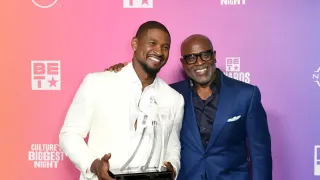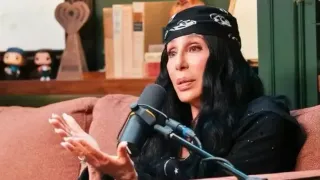April 16, 2019
Democrats Raise $75M so Far, Signaling A Drawn-Out Fight
Brian Slodysko READ TIME: 3 MIN.
Democratic presidential candidates raised about $75 million during the first quarter of the 2020 election, a lackluster sum spread out across more than a dozen campaigns that signals a drawn-out battle likely lies ahead.
Vermont Sen. Bernie Sanders led the field by raising $18 million and California Sen. Kamala Harris came in second with $12 million. Former Texas Rep. Beto O'Rourke came in third with $9.3 million, followed by South Bend, Indiana, Mayor Pete Buttigieg, who capitalized on a flurry of publicity to raise $7 million.
The rest of the field of more than a dozen candidates raised $6 million or less apiece.
Fundraising figures submitted to the Federal Election Commission by Monday's reporting deadline show Democratic candidates not only lag behind President Donald Trump, who raised $30 million, but took in less than the party did during the same period in the 2008 election. That year eight candidates collectively raised over $80 million despite a maximum donation amount that was hundreds of dollars less than the current $2,800 cap.
Part of the difficulty is many donors are staying on the sidelines, waiting for the field to thin. At the same time, low-dollar contributions from party's base, a source of money that helped Democrats retake the House last year, haven't made up the difference.
"There is no question that the numbers are not at the level that they were with Barack Obama and Hillary Clinton in 2008," said Tom Nides, a Clinton adviser and longtime fundraiser. "Am I worried? No, I'm not worried. But I'm a little bit concerned."
The dynamic could change rapidly in the months ahead as Democrats participate in the first presidential debate of the cycle in June. Donors could look to those performances to decide where to direct their money. Former Vice President Joe Biden's expected White House campaign also could scramble the situation.
"Biden is probably going to run, and he is going to raise a boatload of money. He just will. And then the overall numbers will start to look better," said Tim Lim, a digital strategist and fundraiser who worked for Obama and Clinton.
Outside of the fundraising front-runners comes Massachusetts Sen. Elizabeth Warren, who raised $6 million, Minnesota Sen. Amy Klobuchar with $5.2 million and New Jersey Sen. Cory Booker, who raised $5 million. New York Sen. Kirsten Gillibrand raised $3 million, while Washington Gov. Jay Inslee raised $2.2 million, former Colorado Gov. John Hickenlooper took in about $2 million and Hawaii Rep. Tulsi Gabbard raised $1.9 million. Former Housing Secretary Julian Castro took in $1.1 million.
A combination of factors has led to the candidates' cash quandary. Some of the donors who are getting involved in the campaign are cutting checks to multiple candidates but aren't bundling money by asking their friends, colleagues and acquaintances to give, too.
Despite a large amount of hype surrounding online fundraising, it's also proven to be unreliable. Networks of online donors take time to build out, and the ability to raise money on the internet often can be tied to a fleeting viral moment that provokes a vivid emotional response from the party's base.
"People are running slash-and-burn email programs. When you are trying to turn around these donations from your newly added-on activists in two months or less, it's only going to hurt you because nobody is going to want to deal with that many emails," Lim said. "To get the most successful (return on investment) you have to engage with your audiences over several months or more, and you can't make it all about money."
Then there's the fierce intraparty debate over the propriety of relying on big-money donors to finance their campaigns. Warren, who has struggled to raise money, tried to force the issue by stating that she would forgo traditional fundraisers, a risky gambit aimed at getting the party's grassroots engaged.
While Sanders, Buttigieg and O'Rourke raised significant sums on the internet, Warren has lagged, though most of her money came from online donors. Both she and Gillibrand spent nearly as much as they raised, though both have millions in their Senate campaign funds that they can tap to stay afloat.
Some Democrats fear a campaign finance purity test will only hurt the rest of the field.
"What's happening right now – and I think this is a brilliant political strategy on Bernie's part – is that no candidate can touch him by raising money the way he raises it," said Rufus Gifford, Obama's former finance director. "If this continues, you could see Bernie Sanders as the only candidate with a massive financial advantage. You've got to think that gives him a leg up over any other campaign. In my mind, the other campaigns are walking into that trap."
___
Associated Press writer Bill Barrow in Spartanburg, South Carolina, contributed to this report.






